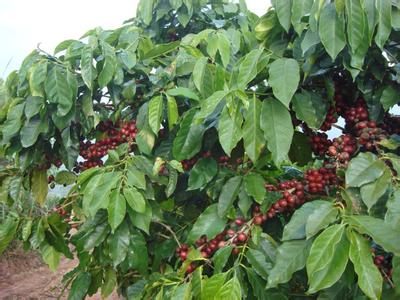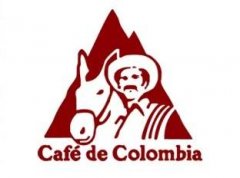Sweet and bitter Brazilian sirado coffee beans Flavor Taste Aroma Description Introduction

There are many large farms in Brazil, which run endless coffee plantations. They use machines to harvest and dry them. They are so efficient in automation that they regard coffee as a general agricultural material and completely abandon the flavor and flavor. As a result, many select coffee companies simply do not sell Brazilian beans so as not to demean themselves. In select coffee shops, there are still occasional Brazilian "santos" coffee, but they are all "Bourbon Santos" (bourban santos) rather than low-priced "Ping Dou Santos". Santos is a descendant of the bourbon species, hence the name for the port of Santos export. In the first three or four years before the coffee tree began to bear fruit, the beans were small and curved, with excellent flavor, and became the "Bourbon Santos". After that, the beans became bigger, flat in shape, no longer bent, and became "flat bean Santos". The flavor was not as good as before. Brazilian coffee can be found everywhere in Taiwan, but most of them are flat bean Santos. In fact, there are still high-quality coffee beans in various parts of Brazil, which will be sold on the market under their own name and are no longer commonly known as "Brazilian coffee." Some farms still retain the old bourbon species, with small particles of raw beans, obvious bending, red silk on the central line and the nickname "red center". Bourbon beans taste full, strong aroma, like drinking old wine, it is well worth a try
Brazil is vividly compared to the "giant" and "monarch" of the coffee world. There are about 3.97 billion coffee trees there, and small farmers now grow 75% of Brazil's total coffee production. The number of coffee producers in Brazil is twice or even three times that of Colombia, the second largest coffee producer in the world.
Unlike in the past, Brazil's economy is less dependent on coffee, which accounts for only 8% of GDP and 10% of GDP. Before World War II, Brazil accounted for 50% or more of the world's coffee production, and now it is close to 30%. But the country's impact on the world's coffee, especially on coffee prices, is significant. For example, two frost disasters in 1994 caused a sharp rise in global coffee prices.
Since the introduction of coffee trees from French Guiana (Guyana) in 1720, coffee production has gradually become a science. Before 1990, the Brazilian government carried out strict monitoring of the coffee industry, with both strict intervention and price protection measures, and the state has been implementing minimum price protection measures for farmers, resulting in coffee overproduction. Before World War II, the remaining stock reached 78 million bags, which had to be burned by fire or thrown into the water to destroy.
Since the opening of the free market in 1990, the original Brazilian Coffee Authority (IBC) has been replaced by the National Economic Association, the country's non-investment administrative body, which pursues a policy of non-intervention and allows producers to negotiate directly with exporters. The business activities of exporters are supervised by government legislation, and legitimate exporters are registered by the relevant departments.
Well, we reached it today.
The Kaseru establishment, quality assurance has previously been neglected, based on the logistics bar code, commodity exports, can now balance the production history.
In 2003, on the basis of the American (SCAA) Special Coffee Association and the conclusion, the coffee SCAA "taste" type will be promoted to expert consensus, and the exclusion of "taste" from previous evaluations is now key.
Since then, with regard to the assessment of the location at the Serrado Coffee Institute, a certificate has been issued in accordance with the provisions of SCAA Kaseru.
In addition, in 2005, Kaseru's Serrado Coffee Origin quality Certification (name Serrado Certification) was issued taking into account the certificate of origin and the preemptive right of coffee in the designated area of Serrado.
Serrado (Serrado Coffee) is a high-quality brand.
In 2005, due to the first right designated by the Serrado Coffee region in the field of origin certification, coffee met the standard in this area of production, "called Serrado" and claimed to be recognized.
Like wine, coffee producing areas allow only limited quality "identity" for the successful acquisition of world-class coffee regions, and the name "Serrado" is now known.
The "Serrado title" is called and you must pass the certification test and production quality. For production, the conditions for the production of so-called project rules (certification area, production area elevation, identification of varieties, best soil, best agricultural technology, in the guaranteed voluntary participation program) have been met, so that if planted in a designated certification, the farm can accommodate signs of Kaseru certification.
In addition, the quality, status and number of evaluation methods with a score of more than 75 points SCAA. All our coffee is delivered only those high-quality coffee beans.
Serrado field environment
In Serrado, in addition to the temperate climate, irrigation facilities enable enterprises to always maintain a stable production supply of quality.
In addition, in planting, the balance of the entire environment, spreading herbicides, nourishing weeds that are enough to spread chemical fertilizers, daring to fill the land, harvesting weeds rich in humus, the production of coffee trees will be reduced, while the meticulous operation of nature will take the earth-friendly and safe way.
As a result, small animals and earthworm armadillos are often seen on the ground, with the unique characteristics of the Serrado agricultural community.
You can also see that the real estate next to a pig farm and ranch is one of the typical agricultural Serrado landscapes.
So chicken and pork can easily get organic fertilizers for cow manure composting, plus they are all scattered compost fruit cherries and parchment. The edification of these environments, on the ground, makes it a powerful natural organic ecology of Serrado coffee. A
Important Notice :
前街咖啡 FrontStreet Coffee has moved to new addredd:
FrontStreet Coffee Address: 315,Donghua East Road,GuangZhou
Tel:020 38364473
- Prev

A brief introduction to the planting situation of Matari mocha boutique coffee beans, geographical location, climate and altitude
Matari mocha-the best in mocha coffee, like top red wine, rich tropical fruit flavor, infatuated, rich and varied flavor with unique sunshine flavor, fine taste, can also feel a hint of chocolate sweetness in the final rhyme, the taste is strong and worthy of careful taste. Product name: Yemen Matari Moka Yemen Mattari Mocca Origin:
- Next

A brief introduction to the History and Culture of the Origin and Development of Brazilian Hillado Fine Coffee beans
Serrado field environment in Serrado, in addition to the temperate climate, irrigation facilities enable enterprises to always maintain a stable production supply of quality. In addition, in planting, the balance of the whole environment, spreading herbicides, nourishing weeds that are enough to spread chemical fertilizers, daring to fill the land, harvesting weeds rich in humus, producing coffee trees will be reduced, while the meticulous operation of nature will take the earth-friendly and safe way.
Related
- Detailed explanation of Jadeite planting Land in Panamanian Jadeite Manor introduction to the grading system of Jadeite competitive bidding, Red bid, Green bid and Rose Summer
- Story of Coffee planting in Brenka region of Costa Rica Stonehenge Manor anaerobic heavy honey treatment of flavor mouth
- What's on the barrel of Blue Mountain Coffee beans?
- Can American coffee also pull flowers? How to use hot American style to pull out a good-looking pattern?
- Can you make a cold extract with coffee beans? What is the right proportion for cold-extracted coffee formula?
- Indonesian PWN Gold Mandrine Coffee Origin Features Flavor How to Chong? Mandolin coffee is American.
- A brief introduction to the flavor characteristics of Brazilian yellow bourbon coffee beans
- What is the effect of different water quality on the flavor of cold-extracted coffee? What kind of water is best for brewing coffee?
- Why do you think of Rose Summer whenever you mention Panamanian coffee?
- Introduction to the characteristics of authentic blue mountain coffee bean producing areas? What is the CIB Coffee Authority in Jamaica?

